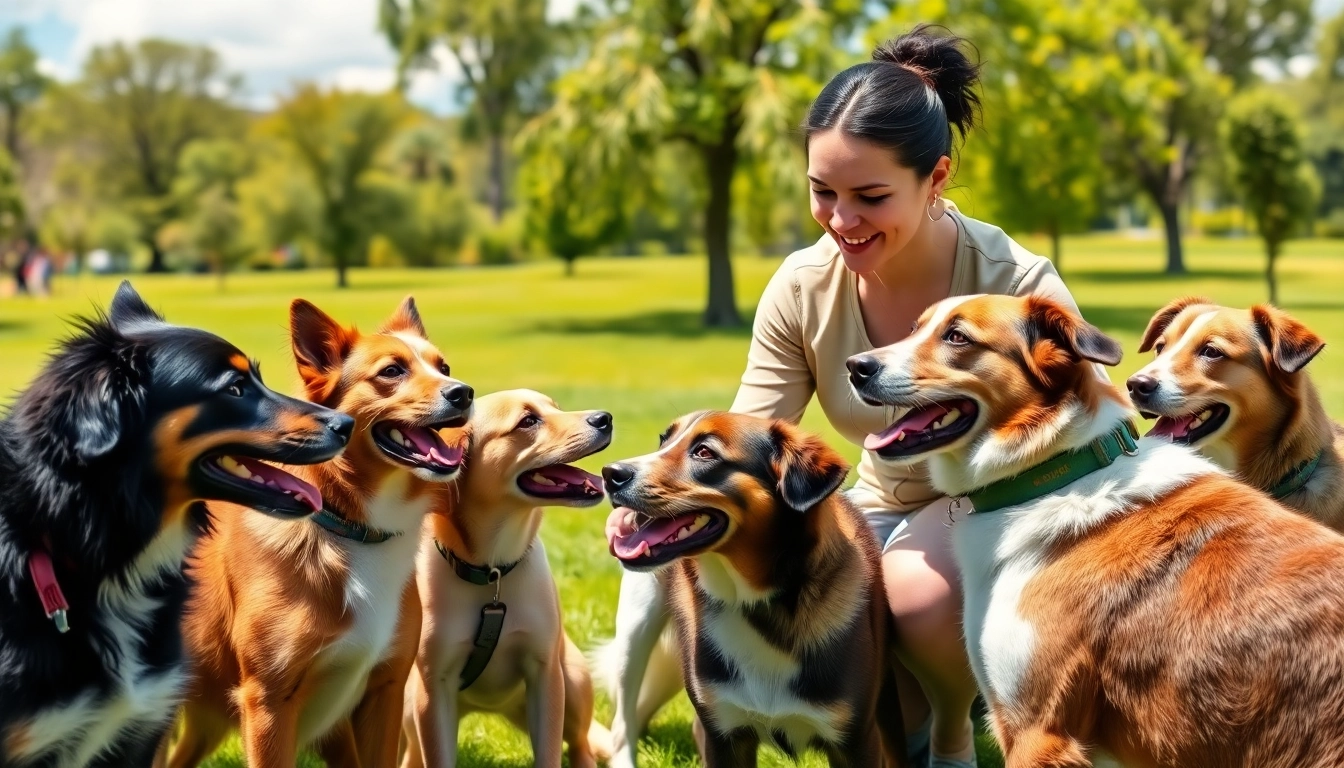Understanding Autism Dogs
What Are Autism Dogs?
Autism dogs, also known as autism assistance dogs or autism service dogs, are specially trained canines that provide support to individuals with autism spectrum disorder (ASD). These dogs help individuals manage their symptoms and facilitate independence in daily activities. By performing a range of tasks tailored to the specific needs of their handlers, autism dogs play a critical role in creating a supportive environment for autistic individuals and their families.
The training required for these dogs goes beyond basic obedience; they learn specific skills designed to aid individuals with autism. For instance, they can be trained to help mitigate sensory overload, reduce anxiety, and even assist in promoting social interaction. Not only are they companions, but they also serve as valuable tools for improving the quality of life of those diagnosed with autism. You can explore a variety of options for obtaining autism dogs.
How Autism Dogs Help
Autism dogs contribute in profound ways that help ease the challenges faced by individuals with autism. Here are several methods by which they extend their support:
- Safety and Security: Many individuals with autism struggle with wandering or bolting, which can pose significant safety risks. A trained autism dog can help keep their handler safe by providing a sense of security and acting as a source of navigation.
- Emotional Regulation: Autism dogs are adept at recognizing signs of anxiety or distress. They can be trained to provide deep pressure therapy, a technique that has been shown to help calm the nervous system and reduce anxiety levels during overwhelming situations.
- Social Interaction Aid: These dogs often draw attention and can facilitate interactions with peers, promoting social skills development. They serve as conversation starters and can ease social anxiety, making it easier for individuals to engage with others.
Types of Autism Dogs Available
There are several types of autism dogs, each designed to meet various needs depending on the severity of autism symptoms and personal family situations:
- Service Dogs: These dogs are specifically trained to perform tasks that assist individuals with autism. Service dogs can help with mobility, alert caregivers in emergencies, and provide emotional comfort.
- Therapy Dogs: Though they do not have the same legal status as service dogs, therapy dogs also play an important role. They are often used in schools or therapy sessions to help children with autism engage and interact in a controlled environment.
- Emotional Support Dogs: While they may not have specialized training, emotional support dogs provide companionship and comfort, alleviating feelings of loneliness and distress often experienced by autistic individuals.
The Benefits of Autism Dogs
Emotional Support for Children
One of the primary benefits of having an autism dog is the emotional support these canines provide. Dogs have an innate ability to connect with humans, and for children with autism, this relationship can be particularly profound. Here’s how they help:
- Building Trust: Dogs are loyal creatures, which can help children with autism feel a sense of trust and safety in their companionship, fostering a non-judgmental environment.
- Reducing Anxiety: The calming presence of a dog can significantly reduce anxiety levels. Many children report feeling more relaxed and secure with their autism dogs around.
- Encouraging Expression: Autism dogs can encourage children to express emotions they may struggle to communicate. Simply petting a dog can evoke feelings of joy and comfort, promoting emotional expression.
Enhancing Social Skills
Social interactions can be particularly challenging for individuals with autism. Autism dogs can help bridge the gap in social communication:
- Facilitating Social Interactions: Dogs are often seen as neutral ground by peers, which can be a great way for children to engage with others. An autism dog can attract attention and act as a catalyst for conversations.
- Promoting Teamwork: Caring for a dog requires cooperation and teamwork. Children can learn valuable social skills as they pitch in to care for their autism dog.
- Enhancing Communication: Interacting with a dog can improve a child’s ability to communicate, as they learn to express their needs and emotions in ways that are more understandable to their peers.
Improving Family Dynamics
Autism dogs can help families better connect and communicate:
- Unity in Caregiving: The dog’s presence can foster a shared mission among family members, creating teamwork as everyone affects the dog’s care.
- Reduced Stress: Having an autism dog can alleviate stress within the family unit. More relaxed individuals create a more pleasant home environment.
- Quality Bonding Time: Engaging with a dog can encourage family activities, from walks to training sessions, enhancing family bonding and improving communication.
Choosing the Right Autism Dog
Assessing Your Child’s Needs
When considering bringing an autism dog into your family, assessing your child’s unique needs is essential. Here are several factors to consider:
- Severity of Autism Symptoms: Understanding the specific challenges your child faces will help determine the type of dog and training needed.
- Family Lifestyle: Consider the daily routine and temperament of your family. A high-energy working dog may be unsuitable for a more relaxed living environment.
- Allergies or Sensitivities: Ensuring that no family member is allergic to dogs is crucial. This may influence the breed of dog you choose.
Training Considerations
Training is a critical component of integrating an autism dog successfully into your family. Consider the following:
- Basic Obedience Training: Training should start with basic obedience commands such as sit, stay, and come. These foundational skills are pivotal for effective interaction.
- Task-Specific Training: Depending on your child’s unique needs, you may need to consider task-specific training, such as alerting to sensory overload or providing steadiness during moments of distress.
- Ongoing Education: Canine training is a lifelong endeavor. Regular training sessions and updates to skills will ensure the dog remains well-adjusted to the needs of your family.
Finding Reputable Breeders or Organizations
The selection of a reputable source from which to acquire an autism dog is vital:
- Research Organizations: Look for organizations that are known for training autism service dogs and assess their reviews and testimonials.
- Interviews with Trainers: Have open conversations with potential trainers or breeders to understand their training philosophy and to gauge the quality of their dogs.
- Meet the Dogs: Whenever possible, meet with the dogs before making a commitment. Observe their behaviors and how they interact with potential handlers.
Training Your Autism Dog
Basic Commands and Obedience
Training your autism dog starts with basic commands that establish discipline and communication between you and your furry companion:
- Positive Reinforcement: Use treats and praise to encourage desirable responses from the dog. This technique strengthens the learning process.
- Consistency is Key: Always use the same commands and reward systems to avoid confusion.
- Regular Practice: Frequent training sessions will help reinforce learned behaviors and commands.
Socialization Skills
Socialization is crucial for autism dogs, as it helps to ensure their ability to interact well in various environments:
- Exposure to Different Environments: Take your autism dog to different locations, people, and sounds to build their adaptability.
- Controlled Interactions: Practice interacting with the dog in various social settings to build comfort and confidence in both the dog and the handler.
- Gradual Introduction to Challenges: Allow the dog to face new situations gradually. This desensitization process will help the dog remain calm and collected in the face of new experiences.
Specialized Tasks for Autism Support
Beyond basic training, you may want to teach your autism dog specialized tasks that are tailored to support your child:
- Grounding Techniques: Train the dog to nudge or lay against the child during moments of distress, providing an anchoring presence.
- Alerting to Sensory Overload: Dogs can be trained to recognize signs of sensory overload in their handler and provide comfort or lead them to a safe space.
- Fetching Items: Teach the dog to retrieve certain items during moments of anxiety, offering the child cognitive distractions that can alleviate stress.
Resources and Support for Autism Dogs
Organizations Offering Autism Dogs
Many organizations are dedicated to training and providing autism dogs to families in need. These groups often offer resources that can help with the selection and training processes:
- National Service Dog Organizations: These organizations can guide the application process for obtaining a suitable autism dog.
- Community Programs: Local programs may offer workshops and seminars on the benefits and training of autism dogs, helping families integrating them into their homes.
- Veterinary Connections: Many veterinarians have connections with trainers and breeders and can provide recommendations tailored to your situation.
Financial Aid and Grants
The costs associated with obtaining and training autism dogs can be substantial. Exploring financial aid options can alleviate some of this burden:
- Service Dog Grants: Some organizations offer grants to help families offset the costs associated with acquiring and training autism dogs.
- Fundraising Opportunities: Many families turn to crowdfunding platforms to raise funds for their dog’s training and care.
- Insurance Coverage: Check with your health insurance provider to see if they cover any costs related to the training of service animals for autism support.
Community Support Groups
Connecting with other families who have experience with autism dogs can provide invaluable support and insight:
- Online Forums: There are dedicated online communities where families can share experiences, tips, and resources.
- Local Support Groups: Participating in local support groups can provide face-to-face interaction, allowing families to network and find support within their communities.
- Workshops and Seminars: Attending events focused on autism and service dogs will enhance your knowledge and the community feel in your area.



